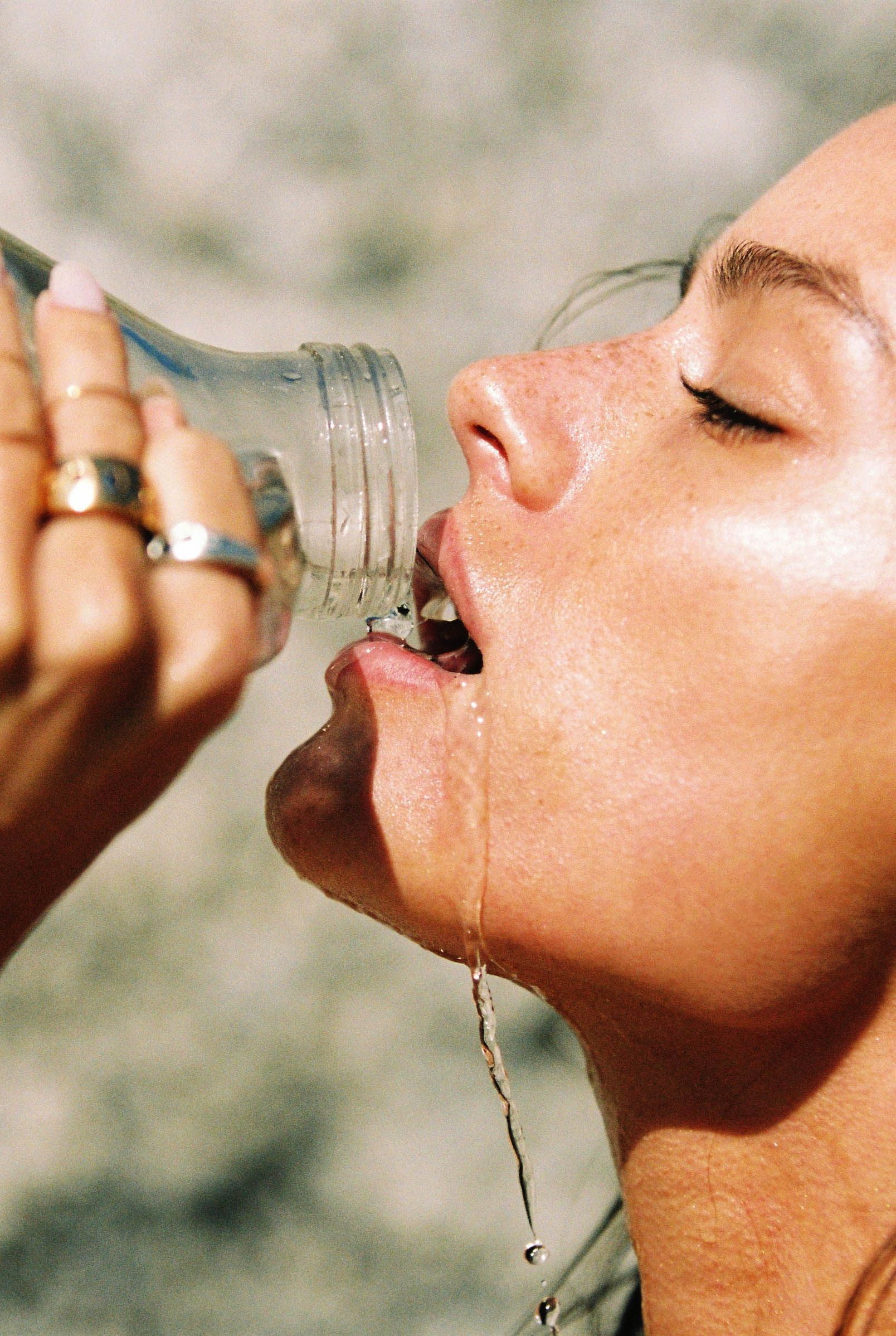Hydration and Mental Health: The Connection
Water is essential for life, yet its profound impact on mental health is often underestimated. As a clinical psychologist, I have observed how adequate hydration can influence mood, cognitive function, and emotional resilience.
This article explores the intricate relationship between hydration and mental health, emphasizing the importance of maintaining optimal hydration for psychological well-being in today’s demanding world.
The Role of Hydration in Brain Function
The human brain is approximately 75% water, making it particularly sensitive to shifts in hydration levels. Water plays a critical role in maintaining homeostasis, supporting neurotransmitter production, and ensuring smooth communication between neurons.
Even mild dehydration can affect brain function, leading to a decline in attention span, memory retention, and executive function (Shabir, 2020).
A 2022 study published in Nutrients also confirmed that hydration status significantly influences cognitive performance across age groups, particularly in tasks requiring sustained attention (Kavouras et al., 2022).
The Mental Toll of Dehydration
Dehydration affects more than just physical performance—it can also trigger significant mental health changes.
Research shows that even slight dehydration can increase fatigue, irritability, and anxiety (Armstrong et al., 2012). Over time, chronic dehydration may be associated with depressive symptoms and reduced cognitive functioning (Popkin et al., 2010).
Furthermore, dehydration can elevate cortisol—the stress hormone—intensifying feelings of emotional overwhelm and diminishing the ability to self-regulate (Masento et al., 2014).
How Hydration Supports Mood Stability
Proper hydration is vital for mood regulation. Water intake helps maintain the balance of brain chemicals responsible for emotional stability.
A study found that participants who increased their daily water consumption reported feeling less tense and confused, with higher levels of calmness and contentment (Pross et al., 2014).
Maintaining hydration, therefore, becomes a simple yet impactful practice in supporting emotional well-being, particularly for individuals vulnerable to mood swings or high stress.
Recognizing Dehydration Before It Escalates
Many people overlook the signs of dehydration, mistaking them for general fatigue or stress. Key indicators include:
- Difficulty concentrating
- Headaches
- Low energy levels
- Dry mouth or lips
- Dark-colored urine
- Irritability or mood fluctuations (Shabir, 2020)
Catching these symptoms early can prevent cognitive strain and emotional dips.
Daily Water Intake: What’s Enough?
The amount of water needed for optimal mental and physical function varies based on age, gender, activity level, and climate. As general guidance, the National Academies of Sciences, Engineering, and Medicine (2020) recommends:
- Men: ~3.7 liters (15.5 cups) per day
- Women: ~2.7 liters (11.5 cups) per day
This includes total fluids from all beverages and food sources. On hot days or during physical activity, these needs increase.
Hydration Habits That Boost Mental Clarity
Developing daily hydration habits can sharpen cognitive performance and emotional balance. Consider these strategies:
- Start your morning with water to awaken the system and enhance focus.
- Keep a refillable bottle nearby as a visual cue to stay hydrated.
- Use reminder apps like WaterMinder or Hydro Coach.
- Consume water-rich foods such as watermelon, celery, and strawberries.
- Balance coffee and tea with adequate water, since caffeine has diuretic effects.
These consistent behaviors lay the foundation for long-term mental resilience.
Long-Term Mental Health Benefits of Hydration
Staying hydrated over time supports memory, emotional regulation, and stress adaptation. A longitudinal study by Masento et al. (2014) indicated that people with consistently low fluid intake were more prone to elevated stress and emotional instability, while those who maintained hydration displayed greater psychological resilience.
Research Snapshot: Hydrated vs. Dehydrated Minds
Scientific comparisons between hydrated and dehydrated individuals reveal stark differences. One study found that even mild dehydration impaired working memory and increased mental fatigue during attention-heavy tasks (Ganio et al., 2011).
Military studies have further shown that dehydration impairs decision-making, increases irritability, and disrupts judgment even in highly trained individuals (Lieberman, 2007).
Hydrated individuals consistently perform better under stress, reinforcing the cognitive benefits of water intake.
Heat, Climate, and Mental Health
Rising temperatures amplify the need for hydration. According to the U.S. Environmental Protection Agency (2023), the U.S. has experienced a 1.8°F increase in average temperature since 1901, contributing to more frequent heatwaves. These changes result in increased fluid loss, even with minimal exertion.
Vulnerable populations—children, older adults, outdoor workers—face heightened risk. Research also links heat exposure and dehydration to higher psychological distress, confusion, and agitation (Kjellstrom et al., 2016).

Dispelling Common Myths
Myth: “I only need water when I’m thirsty.”
Truth: Thirst is a late warning sign. Cognitive decline can begin before the sensation of thirst appears.
Myth: “Coffee and tea count as hydration.”
Truth: While they contribute fluid, their diuretic effect means they can promote water loss if not balanced.
Myth: “Dehydration only affects your body.”
Truth: Studies link hydration status to mood regulation, anxiety, and processing speed (Popkin et al., 2010).
Hydration Guidelines by Age Group
- Children and Teens: Often need reminders and incentives to drink water. Add fruit slices to make it more appealing.
- Adults: Benefit from hydration apps and incorporating water into routines.
- Older Adults: May have a diminished sense of thirst. Regular water breaks and structured routines help.
Tech Tools to Stay Hydrated
- Plant Nanny: Turns water tracking into a fun game.
- WaterMinder: Provides reminders and visual progress tracking.
- HidrateSpark: Smart bottles that light up when it’s time to drink.
These tools are especially helpful for those with ADHD, anxiety, or forgetfulness, enhancing consistency in water intake.
Hydration: A Simple Path to Mental Clarity
In a fast-paced world filled with stress and distractions, hydration stands as a low-effort, high-impact tool for maintaining mental balance. From mood stabilization to cognitive endurance, drinking water offers measurable benefits across every life stage.
But hydration isn’t a cure-all. If you’re experiencing persistent anxiety, depressive symptoms, or emotional exhaustion, professional support can make a transformative difference. At Sessions, our licensed therapists and psychologists, including Dr. Mel Corpus, offer compassionate, evidence-based care in-person or online. Whether you’re navigating stress, burnout, or a specific condition, we’re here to help—one mindful sip and one healing session at a time.
